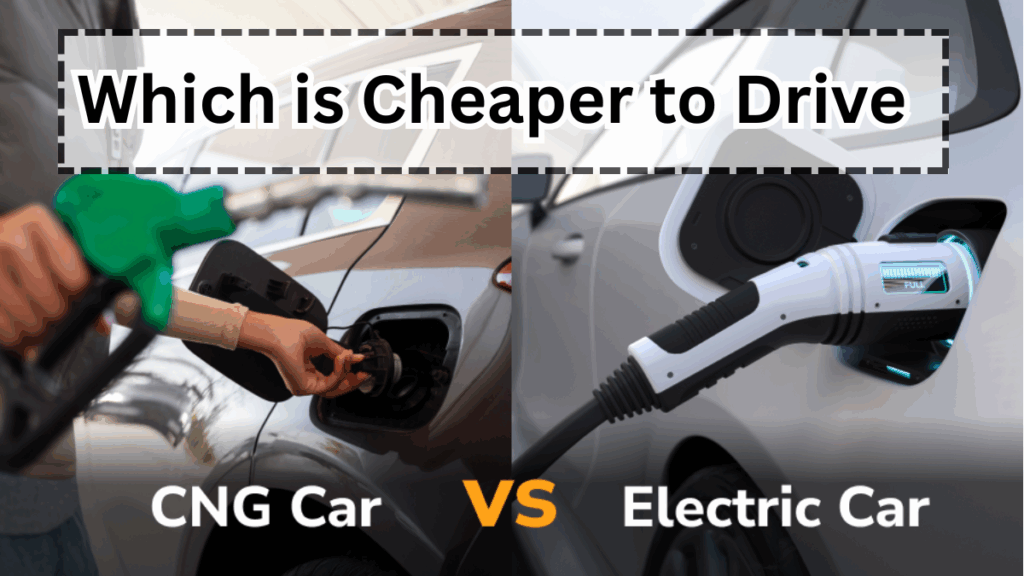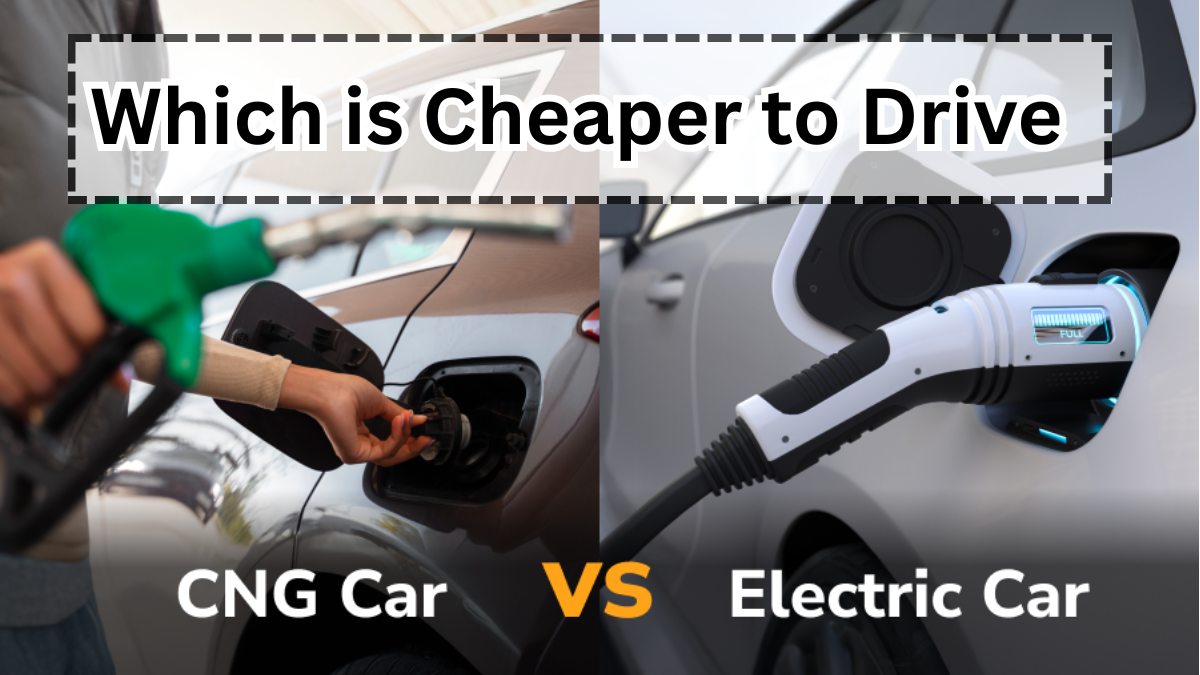In 2025, Indian vehicle buyers face a growing dilemma: CNG or EV? With petrol and diesel prices continuing to soar, both Compressed Natural Gas (CNG) and Electric Vehicles (EVs) offer cost-effective and eco-friendly options. But when it comes to day-to-day expenses, which one is actually cheaper to drive?
This article offers a detailed fuel cost comparison in India, helping you decide what’s more economical in the long run. Here’s everything you need to know about CNG vs EV India 2025.

Initial Purchase Price: EVs Still Costlier?
EVs offer advanced technology and zero-emission driving, but the initial cost remains higher than CNG vehicles.
Average Prices in 2025
| Vehicle Type | Starting Price (Approx.) | Popular Models |
|---|---|---|
| CNG Car | ₹6 – ₹9 Lakhs | Maruti WagonR CNG, Hyundai Aura CNG |
| EV | ₹9 – ₹14 Lakhs | Tata Tiago EV, MG Comet, Tata Nexon EV |
Verdict: If you’re shopping on a budget, CNG is the more affordable choice upfront.
Daily Running Costs: Who’s Cheaper to Operate?
Let’s dive into the core of this fuel cost comparison in India and see what each option costs per kilometer.
EV Running Cost in India (2025)
| Parameter | Value |
|---|---|
| Avg. Electricity Rate | ₹8 per unit |
| EV Efficiency | ~6 km per unit |
| Cost per km | ₹1.30 – ₹1.50 |
CNG Running Cost in India (2025)
| Parameter | Value |
|---|---|
| CNG Price | ₹80 per kg (approx.) |
| CNG Efficiency | ~25 km/kg |
| Cost per km | ₹3.20 – ₹3.50 |
Verdict: The EV running cost in India is significantly lower, making EVs a great option for daily commutes.
Maintenance & Service Costs: EVs Are Easier on the Wallet
Compared to CNG cars, EVs have fewer moving parts and require less maintenance overall.
| Cost Category | CNG Vehicle (Annual Avg.) | EV (Annual Avg.) |
|---|---|---|
| Regular Service | ₹5,000 – ₹8,000 | ₹2,000 – ₹4,000 |
| Engine Repairs | Higher (more components) | Minimal |
| Battery Checkups | N/A | Included in plan |
Verdict: EVs cost less to maintain and visit the workshop less often.
Battery Replacement vs CNG Kit Maintenance
One long-term cost concern with EVs is battery replacement. However, most manufacturers offer long warranties.
-
EV Battery Replacement (after ~8 years): ₹4 – ₹6 lakhs
-
CNG Kit Servicing (yearly): ₹1,500 – ₹2,500
Many EVs now come with 8-year battery warranties, so most users may not face out-of-pocket costs during ownership.
Environmental Impact: EVs Lead the Way
Both CNG and EVs are greener alternatives to petrol and diesel, but EVs have the advantage when it comes to emissions.
-
CNG vehicles still emit CO₂ (though less than petrol)
-
EVs produce zero tailpipe emissions
-
EV adoption is being encouraged through government incentives
Verdict: For eco-conscious buyers, EVs are the better choice.
Final Verdict: CNG vs EV India 2025
Here’s a summary comparison of the key cost and benefit areas.
| Criteria | Winner |
|---|---|
| Initial Cost | CNG |
| Running Cost | EV |
| Maintenance | EV |
| Environmental Impact | EV |
| Long-Term Savings | EV |
Summary
If you’re looking at long-term savings and lower operating costs, EVs are the better option in 2025. However, if your budget is limited and you’re looking for an affordable entry into fuel-efficient driving, CNG is still a viable choice.
Understanding the economics of CNG vs EV India 2025 can help buyers make informed decisions in today’s evolving automotive landscape.
Frequently Asked Questions (FAQs)
1. Is EV really cheaper than CNG in India by 2025?
Yes. Thanks to lower electricity rates and minimal maintenance, the EV running cost in India is much lower than that of CNG vehicles.
2. Which has better resale value — CNG or EV?
Currently, CNG vehicles have more established resale value, but as EV adoption rises, their resale value is improving quickly.
3. Are EV charging stations widely available in India in 2025?
Yes. Most major cities and national highways now have a growing network of EV charging stations, making daily usage much more convenient.
4. Which is better for city driving: CNG or EV?
EVs are ideal for city use thanks to their quiet operation, low running costs, and ease of charging at home. They also produce no local emissions, making them cleaner for urban environments.
Click here to learn more
